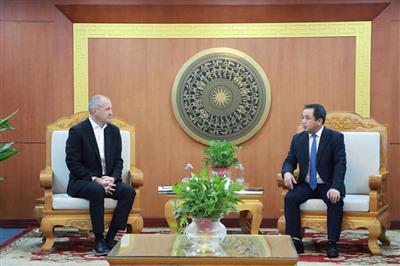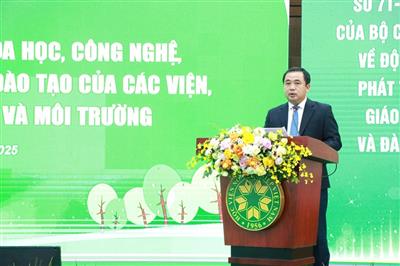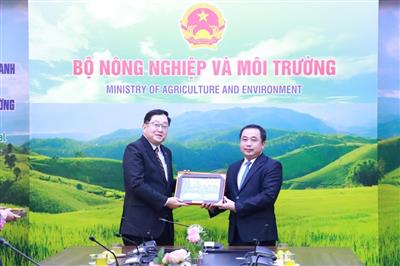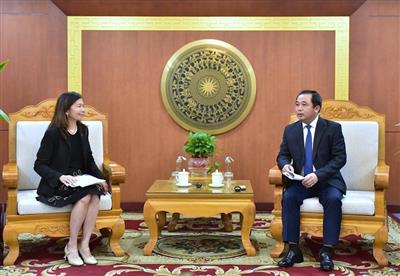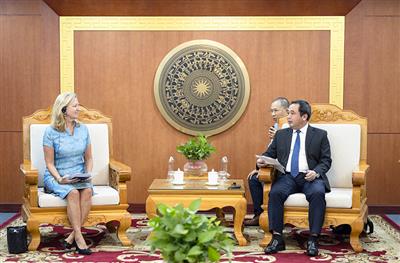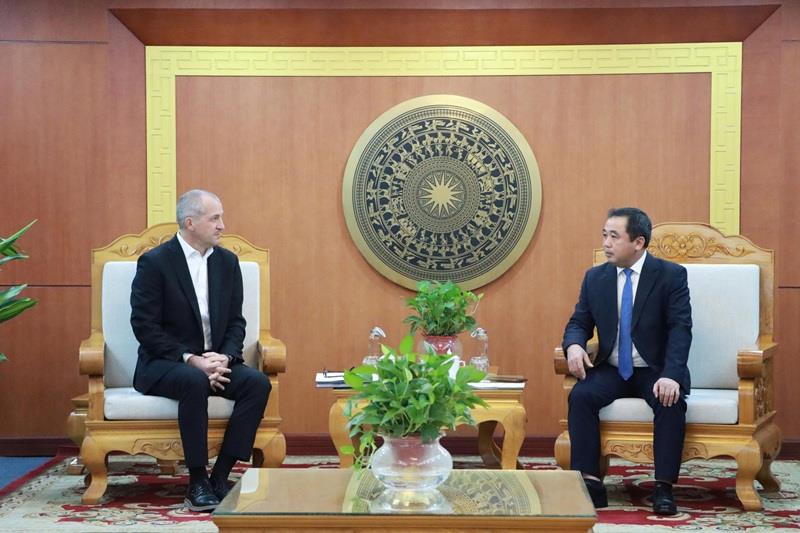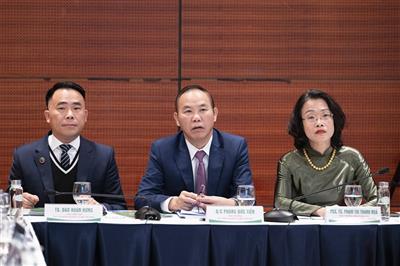
Vietnam seeks to learn from Japan’s high-quality agriculture model
06/09/2025TN&MTAs part of his working visit to Japan, Acting Minister of Agriculture and Environment Tran Duc Thang held important meetings with the Hokuren Federation of Agricultural Cooperatives and toured smart farming models in Hokkaido. The visit opened new opportunities for Vietnam to learn from Japan’s advanced experience in high-quality agricultural production, foster cooperation in training young human resources, and strengthen connections between production, processing, and value chain management.
Applying RTK satellite navigation technology
On September 6, Acting Minister Tran Duc Thang met with Mr. Shinohara Sueji, Chairman of Hokuren. He praised Hokuren’s pivotal role in Japanese agriculture and recognized Hokkaido, Japan’s leading agricultural production region with modern farming techniques, as a valuable example for Vietnam.
At the Naganuma Agricultural Research Institute, scientists are applying the Real-Time Kinematic (RTK) satellite navigation system, which allows agricultural machinery to be operated automatically with centimeter-level precision. Tractors, seeders, and sprayers can therefore run in exact alignment, minimizing waste of seeds, fertilizers, and chemicals while improving labor productivity—an important step toward smart, modern agriculture.
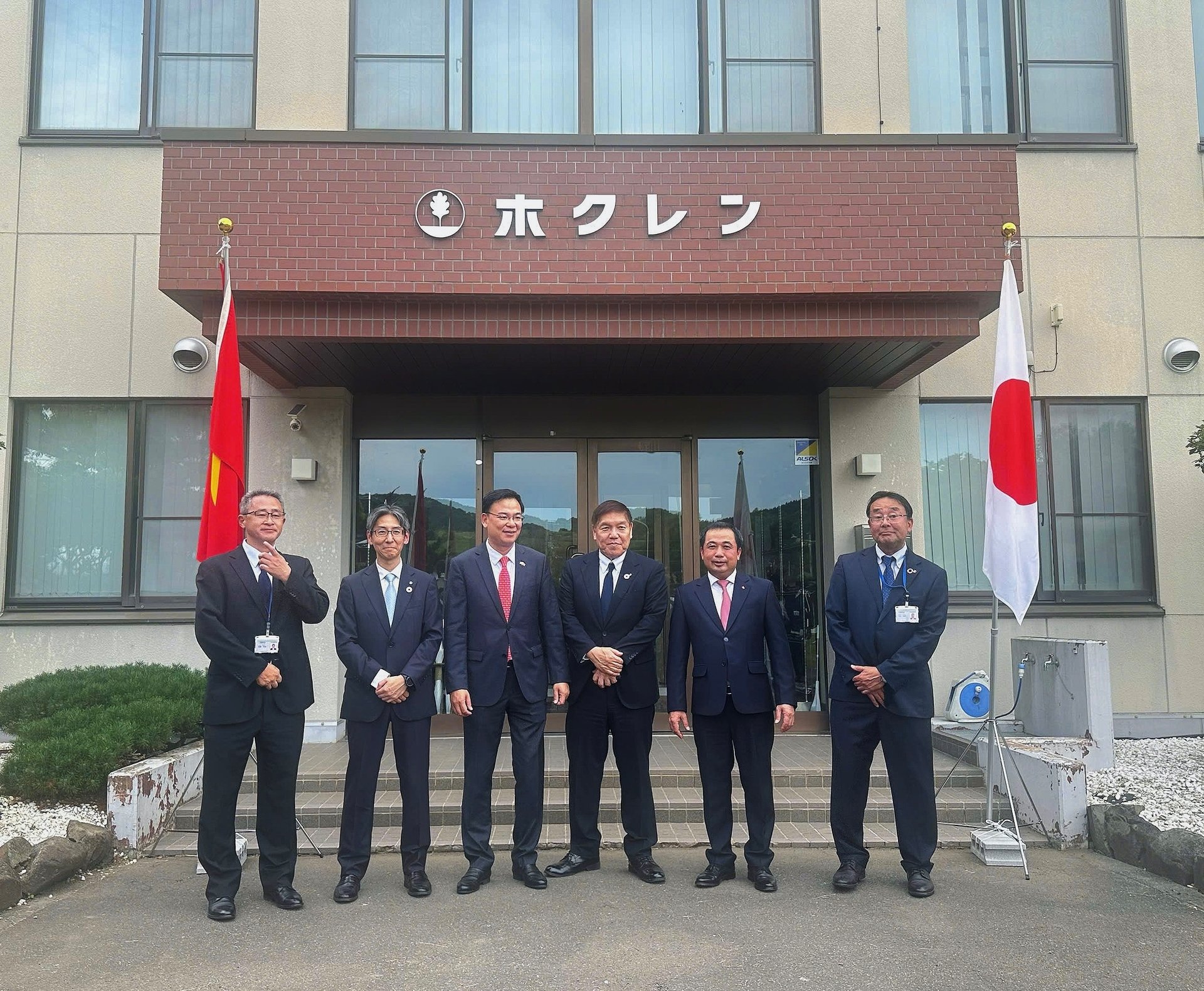
On September 6, Acting Minister Tran Duc Thang visited the Naganuma Agricultural Research Institute, where RTK satellite technology enables precise, automated farming, boosting efficiency and reducing waste (Photo: ICD)
In particular, Hokuren has built a comprehensive RTK station network across Hokkaido, with each station covering a radius of about 20 kilometers. The stations connect via the Internet to provide real-time correction data, ensuring stable operations regardless of weather conditions. By 2025, 71 agricultural cooperatives had joined the network, with over 8,400 registered IDs—demonstrating its widespread adoption and practical value.
Vietnamese scientists have also developed the domestic RTK-VIET system, which enables precise spatial data collection to monitor soil moisture, crop conditions, and environmental changes. This technology not only advances smart farming but also helps protect the environment and reduce pollution. With Japan’s practical experience, Vietnam can effectively adopt RTK technology to enhance productivity and move toward a modern, sustainable, and eco-friendly agriculture.
Smart farming models for higher yields
At the Naganuma Agricultural Research Institute, scientists are developing smart greenhouse models where hydroponic cultivation is combined with sensors and automated control systems to monitor and adjust temperature, light, and humidity. This approach enables even inexperienced farmers to grow crops effectively, producing high-quality agricultural products at optimized costs.
The delegation also visited Komatani Farm in Naganuma town. Covering about 100 hectares, the farm grows a diverse mix of rice, potatoes, pumpkins, onions, red beans, soybeans, and wheat, creating a rich agricultural ecosystem.
Komatani stands out with its natural circular farming model, in which all production activities are designed to nurture the soil and protect the environment. Instead of relying on chemicals, the farm uses composted organic fertilizers made from livestock by-products and straw, while minimizing pesticides. This method builds healthy, microbe-rich soils and allows crops to grow naturally, preserving their distinctive sweetness.

Naganuma Research Farm, part of the Naganuma Agricultural Research Institute
Beyond improving crop quality, the model also sustains a balanced habitat for species such as dragonflies, spiders, frogs, and sparrows. Vietnam could apply Komatani’s approach to achieve both economic benefits and biodiversity conservation.
Acting Minister Tran Duc Thang affirmed: “Hokuren represents a new-generation cooperative model, linking production with processing and consumption. We hope Hokuren will work with us to organize a series of workshops and training sessions for Vietnamese cooperative leaders. Alongside sharing organizational, management, and farmer-linkage experience, sectoral associations in dairy, fruits and vegetables, and aquaculture between the two countries could also connect to implement pilot projects.”
To strengthen cooperation, Vietnam encourages Hokuren to collaborate with domestic research institutes, including the Vietnam National University of Agriculture and the Vietnam Academy of Agricultural Sciences, to launch pilot smart agriculture projects in fruits, livestock, and aquaculture. These projects would tightly connect production, processing, preservation, distribution, and value chain management in selected northern provinces.
“Learning in Hokkaido – Returning to build cooperatives”
Hokkaido is Japan’s leading agricultural hub, known for efficient management and advanced farming techniques. Meanwhile, Vietnam enjoys the advantages of tropical agriculture, a young workforce, and a large domestic market—creating strong potential for modern, sustainable agricultural models.
During the visit, Acting Minister Tran Duc Thang stressed: “With Hokuren’s valuable experience and Vietnam’s practical needs, I believe both sides can jointly implement concrete cooperation projects that bring tangible benefits. Vietnam stands ready to work closely with Hokuren, and we will introduce localities and sectoral associations to begin cooperation as early as 2026.”
Under this vision, Vietnamese workers would undergo hands-on vocational training in Japan, gaining practical expertise before returning home to serve as key personnel in cooperatives and agricultural enterprises. This program could also connect with Vietnam’s agricultural extension network and startup initiatives, facilitating skills transfer, supporting youth development, and fostering rural innovation.
Mr. Shinohara Sueji, Chairman of Hokuren, commended the contributions of the Vietnamese community working in Japanese agriculture, affirming that they play an active role in production. Many Japanese enterprises with Vietnamese employees have achieved clear results, making them an important bridge in bilateral cooperation.
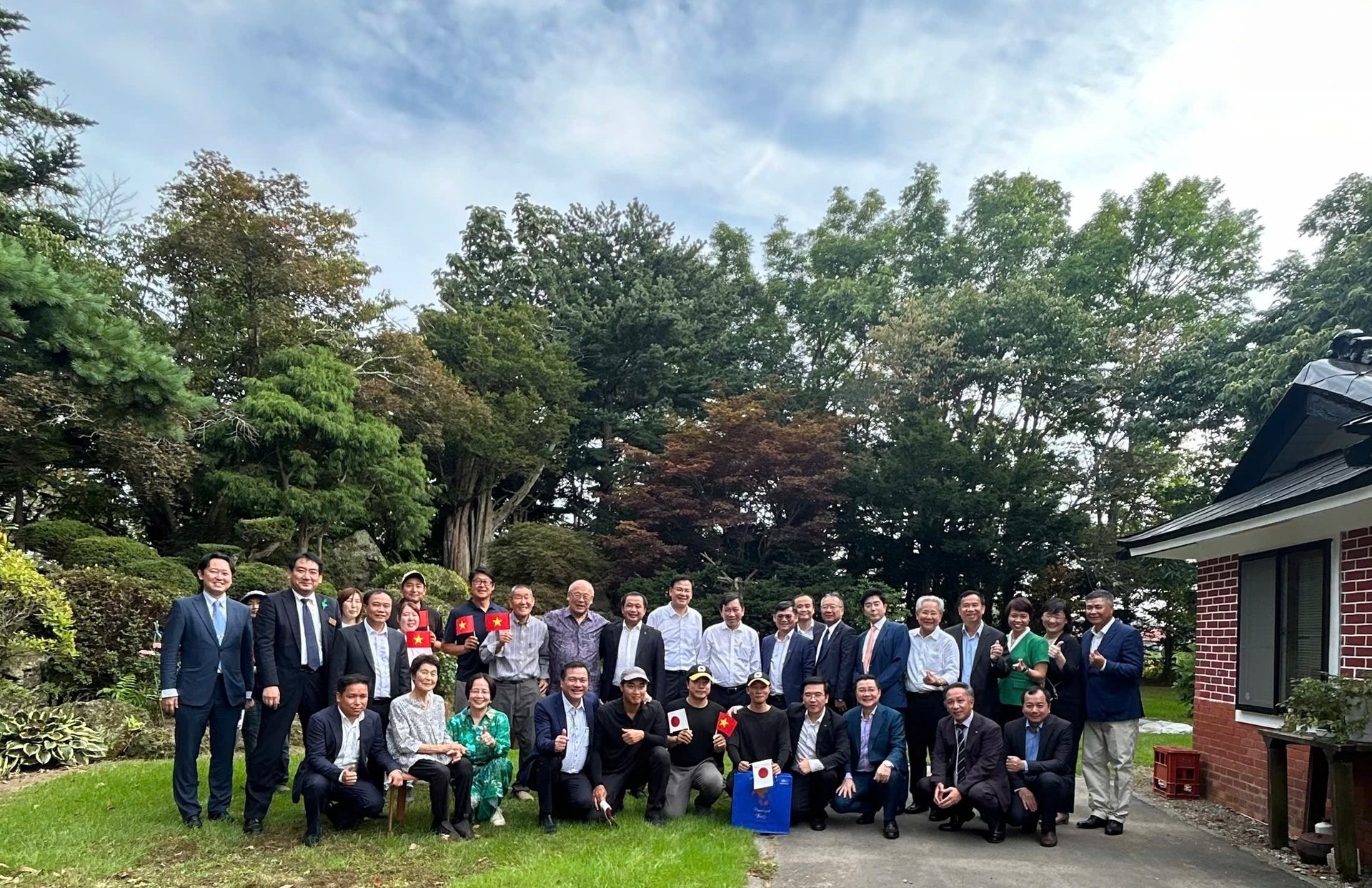
Acting Minister Tran Duc Thang and the delegation took photo at Komatani Farm (Photo: ICD)
“The proposals raised by the Acting Minister align well with our ongoing programs. Hokuren is ready to cooperate with Vietnam within the framework of both governments’ policies and orientations. With our research institutes and 1,000 experienced scientists in crop breeding, I believe Japan and Vietnam have great potential to jointly develop new varieties suited to both ecological conditions,” Chairman Shinohara noted.
As Vietnam enters a new stage of rapid development, backed by the Politburo’s Resolution No. 57-NQ/TW and the National Assembly’s reform policies, Acting Minister Tran Duc Thang’s visit to Japan opens new opportunities for strategic agricultural cooperation. The experiences and partnerships fostered in Japan not only strengthen Vietnam’s production capacity and environmental protection but also advance youth empowerment, paving the way for a modern, sustainable, and globally integrated agriculture.
On the same day, Acting Minister Tran Duc Thang attended the opening of the 4th Vietnam Festival in Sapporo, Hokkaido, highlighting the vibrant cultural ties and long-standing cooperation between Vietnam and Hokkaido in agriculture, fisheries, education, tourism, and trade. He emphasized the role of the Vietnamese community and youth in Japan as “people’s ambassadors,” fostering friendship and creating new opportunities for collaboration in culture, education, and sustainable development.
Khanh Linh


